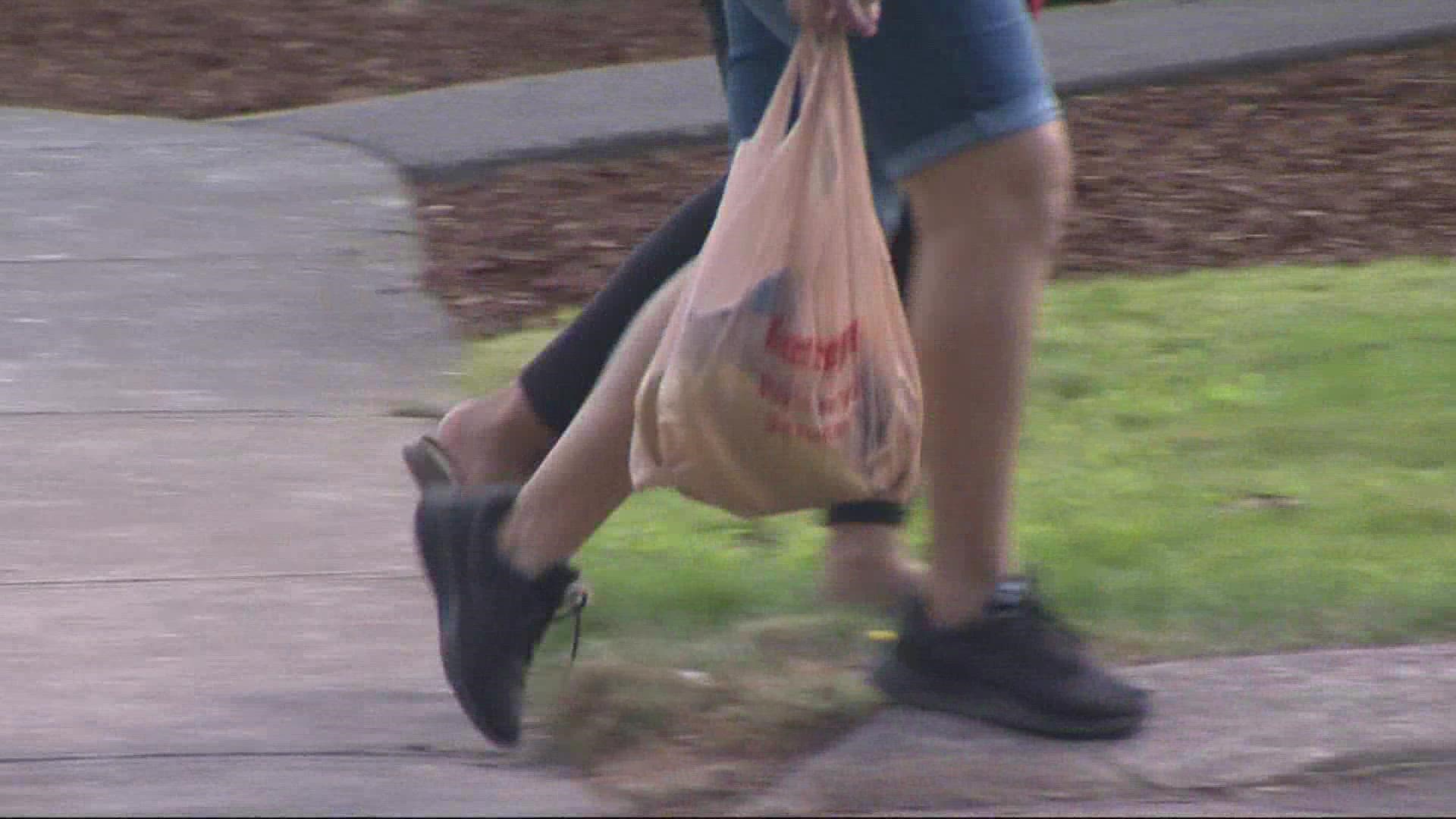VANCOUVER, Wash. — A new state law now in effect in Washington ends the use of single-use plastic bags at checkout counters in stores and businesses.
As of Oct. 1, people need to have their own reusable bag while going to the store or they will be charged an 8-cent fee for a recycled one. The ban does not stop the use of smaller plastic bags, used for meat or produce, or medications at the pharmacy.
“They [single-use plastic bags] create a huge waste problem—often a big litter problem," explained Shannon Davis with the Washington Department of Ecology. "Many of them release microplastics that can create buildups of toxins in our environment. We would love to start promoting a culture of reuse and waste reduction.”
The ban was initially supposed to start in July, but was pushed back due to the pandemic and supply chain problems.
At Chuck's Produce in Salmon Creek, a locally owned grocer, they've got no problem with the new ban. Chuck's has never used plastic bags, offering paper bags only instead.
“We're all about being just a little more natural and the bags have just always been around forever," said Store manager Shawn Jarrett. "The customers just absolutely love them. We have the nicer ones with the handles on them, so it makes it easier for the customers to haul stuff out."
KGW talked with some shoppers at Chuck's on Wednesday. Some didn't like the new ban, others were OK with it— like Maradee Potter who said she's not a fan of plastics.
“Even when it disintegrates it's still there and I want a better environment for the people that follow,” she said.
Another shopper named Wendy Lemieux said, “I just think we've got a lot bigger things to worry about and while you gotta start somewhere, this just isn't it for me."
Every year, Washingtonians use 2 billion single-use plastic bags. They are the major contaminant in Washington's facilities, waterways, roadways, and environment, according to State of Washington Department of Ecology website (WSDE).
“It [the ban] will take some getting used to, we don't expect everyone to love it immediately,” acknowledged Shannon Jones, recycling coordinator for Western Washington. “But I think waste reduction is something we all can get behind and we would all like to see less of the bags littering our environment.”
The single-bag ban doesn't apply to food banks and pantries, and people receiving food stamps, WIC, SNAP, or other government assistance but those programs are encouraged to take actions to reduce the use of single-use plastic carryout bags. Those who are low-income will not have to pay the 8-cent a bad charge if they show proof of being on a food assistance program.

